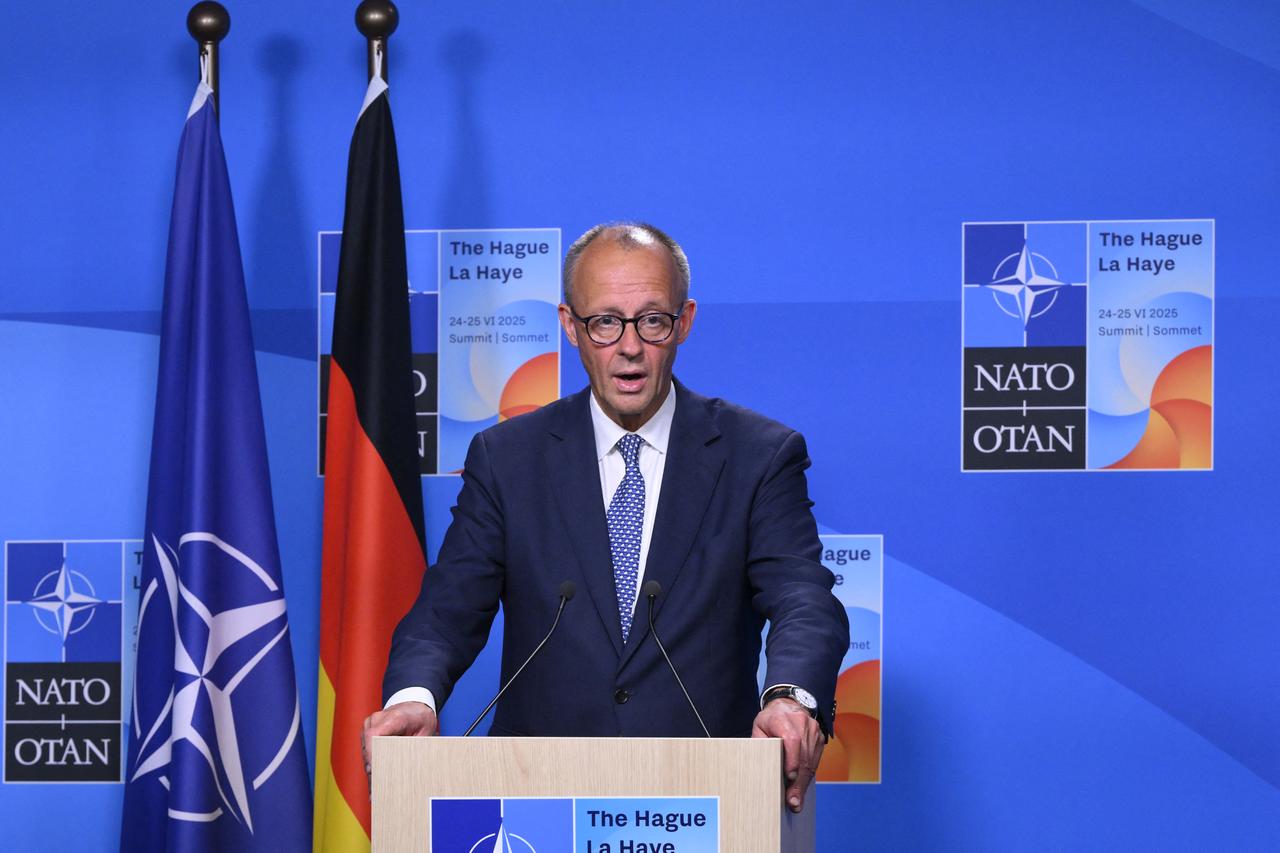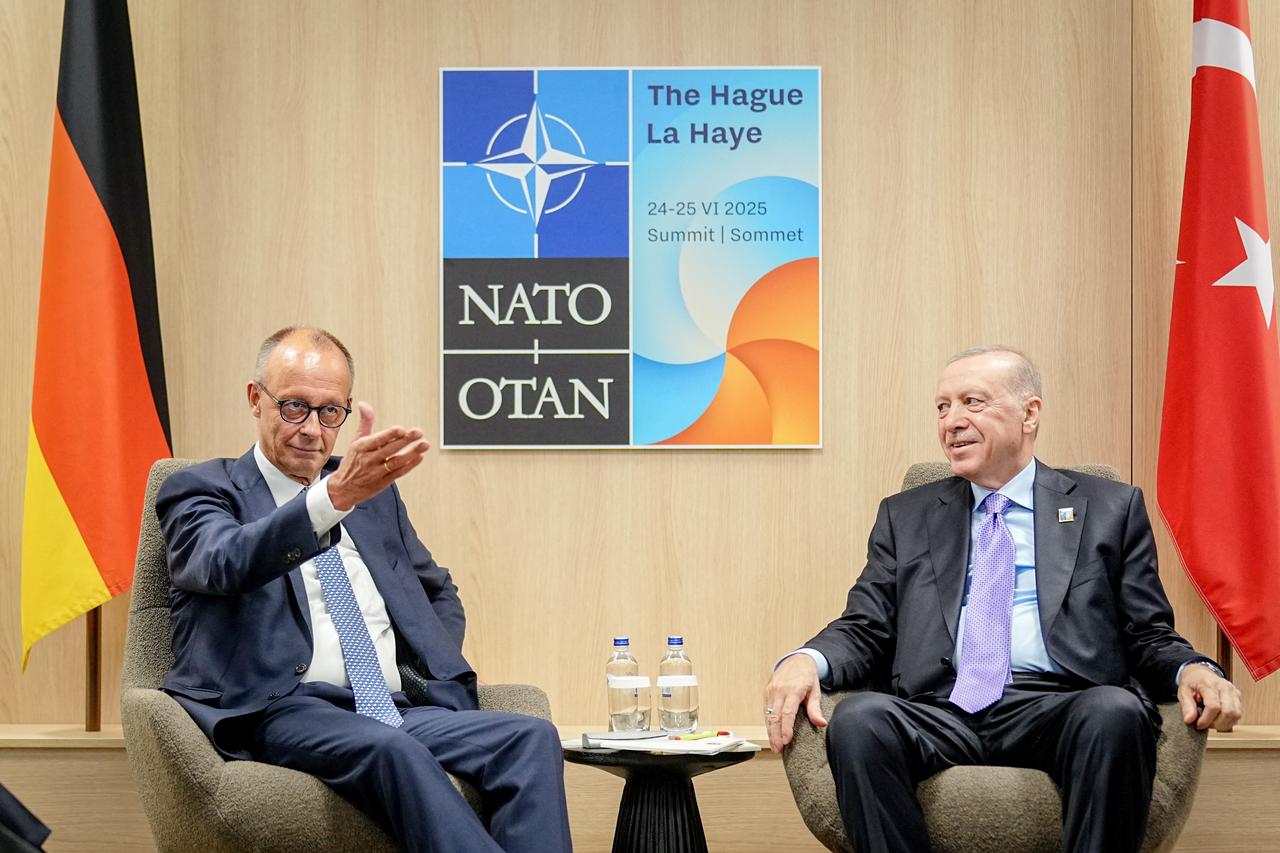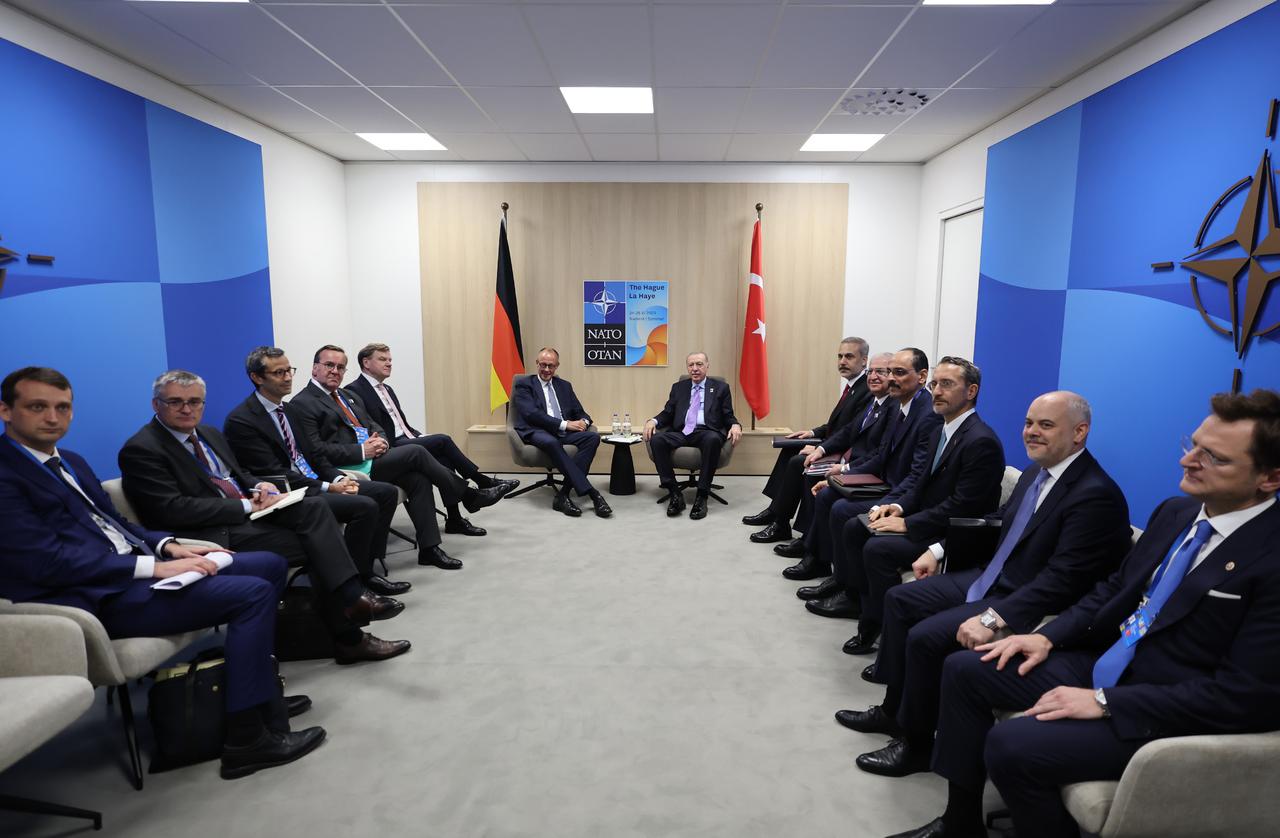
German Chancellor Friedrich Merz has asked Turkish President Recep Tayyip Erdogan to leverage his influence over Russia to help bring an end to the ongoing war in Ukraine, now entering its fourth year.
Speaking at a press conference following the NATO leaders' summit in The Hague, Merz said, "I thanked him for Türkiye's willingness to take on a mediating role, including making Istanbul or Ankara available as venues for such a meeting."
"I also asked President Erdogan to exert influence on Russia and the Russian president to come to the negotiating table so that, after these terrible three and a half years of war in Ukraine and the bloodshed there, a peace solution could finally be reached," Merz said.
Merz also thanked Erdogan for expressing readiness to host potential Ukraine-Russia peace talks in Istanbul or Ankara, reaffirming Türkiye’s willingness to serve as a mediator.
"I had the opportunity to speak personally with President Trump again on the sidelines of this summit," Merz said. "I conveyed to him once more, with regard to the situation in Ukraine, our urgent wish for the American side to impose further sanctions against Russia. There will be no military solution to this conflict. We must increase the economic pressure on Moscow," he stressed.
"A sanctions package may be voted on in the US Senate in the next few days," Merz said. "I have once again encouraged President Donald Trump to approve this so that America can exert greater pressure on Moscow, so that Moscow returns to the negotiating table," he added.

According to a statement from Türkiye’s Communications Directorate, President Erdogan, during his meeting with Merz, underlined the importance of maintaining the recent calm between Israel and Iran, and stressed the need for a permanent ceasefire in Gaza, where the humanitarian crisis continues to worsen.
Erdogan reiterated Türkiye’s support for a just and lasting peace in Ukraine, as well as for regional stability in Syria, adding that improvements in social and economic conditions are necessary for facilitating the voluntary return of refugees.
The leaders also discussed Türkiye-Germany relations and Türkiye's broader ties with the European Union.
President Erdogan stated that Ankara remains committed to advancing its EU relationship and expects a reciprocal approach from Brussels.
Erdogan noted the significant cooperation potential between Türkiye and Germany in areas such as trade, defense, energy, and investment. He expressed hope for further strengthening bilateral ties in the coming period.
The meeting was attended by several senior Turkish officials, including Foreign Minister Hakan Fidan, Defense Minister Yasar Guler, Intelligence Chief Ibrahim Kalin, Communications Director Fahrettin Altun, Presidential Advisor Akif Cagatay Kilic, and AK Party Deputy Chair Halit Yerebakan.

In separate remarks earlier in the day, Chancellor Merz told reporters that NATO decisions are made based on information and strategic convictions, not political favors.
"We do not make decisions to please others, but based on what we believe is necessary for NATO’s defense capabilities in the years to come," he said.
He confirmed that NATO will allocate 3.5% of GDP to core defense needs and 1.5% to resilience and infrastructure, noting this is part of a unified effort to respond to evolving security threats, particularly from Russia.